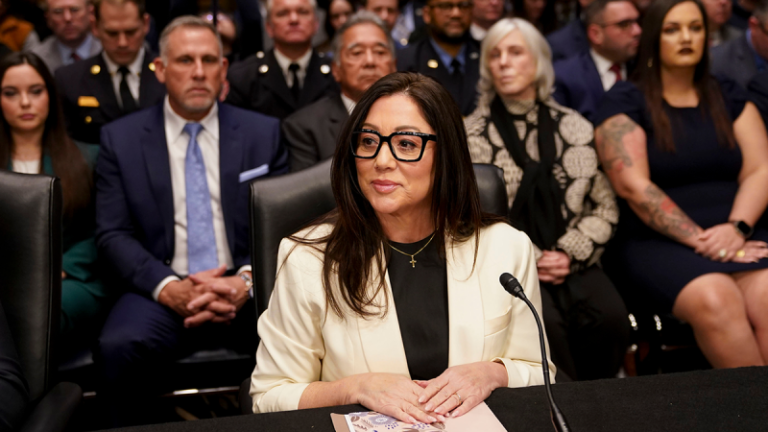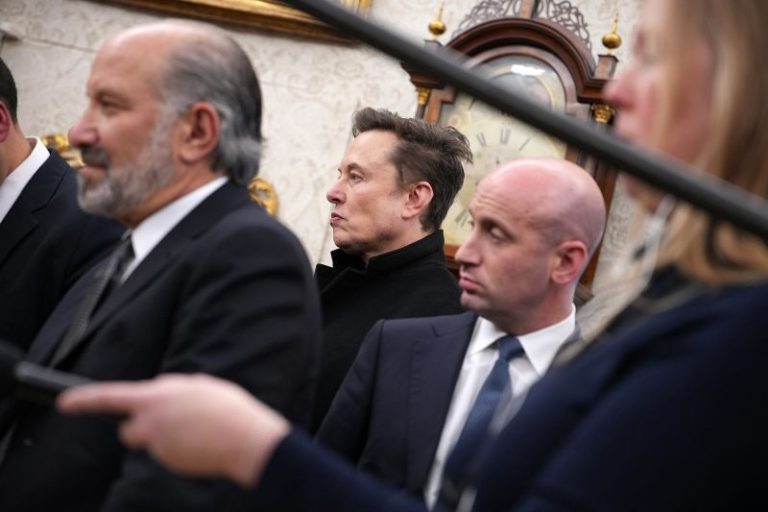The White House will now oversee which news outlets will be part of the White House press pool, rather than the White House Correspondents Association (WHCA), the White House press secretary said Tuesday.
While the WHCA customarily has had the authority to choose the rotation of news outlets that have access to the president in the Oval Office and other areas with limited access, the Trump administration is upending that policy.
‘Legacy outlets who have participated in the press pool for decades will still be allowed to join, fear not,’ White House press secretary Karoline Leavitt told reporters during a briefing Tuesday. ‘But we will also be offering the privilege to well-deserving outlets who have never been allowed to share in this awesome responsibility.’
But President Donald Trump’s White House isn’t the only one to roll out controversial policies regarding press access.
In 2023, more than 440 reporters lost press credentials after President Joe Biden’s White House modified its rules for eligibility for permanent passes.
Credentialed White House press members dropped from 1,417 members to 975 members after the White House unveiled new standards requiring an annual renewal of hard passes, Politico reported in 2023. Journalists without hard passes were still authorized to apply for day passes to the White House.
The Biden White House policy was launched in May 2023 and required reporters to prove employment with ‘an organization whose principal business is news dissemination’ and show that they have ‘accessed the White House campus at least once during the prior six months for work, or have proof of employment within the last three months to cover the White House.’
The Biden White House defended its decision to cut off routine access to these reporters, claiming many of the journalists whose passes expired hadn’t accessed the White House in the previous three months.
‘At the time we initiated this process in early May, roughly 40% of hard pass holders had not accessed the White House complex in the prior 90 days,’ the White House said in a 2023 statement to Politico. ‘We think this demonstrates we’ve led a thoughtful and thorough process that preserves robust media access to campus for everyone who needs it — whether that be with a hard pass or a day pass.’
Leavitt announced in January that the Trump White House would work to ‘restore the press passes of the 440 journalists whose passes were wrongly revoked by the previous administration.’
On Tuesday, Leavitt said the White House’s decision aimed to ‘give the power back to the people’ in an attempt to ensure that ‘all journalists, outlets and voices deserve a seat at this highly coveted table.’
In response, WHCA President Eugene Daniels said the WHCA did not receive any notice in advance of the White House’s decision and said the move ‘tears at the independence of a free press in the United States.’
‘It suggests the government will choose the journalists who cover the president,’ Daniels said. ‘In a free country, leaders must not be able to choose their own press corps.’
Fox News’ Gabriel Hays contributed to this report.










